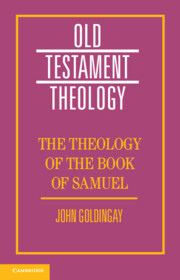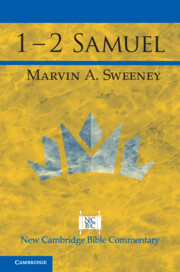7 results
Chapter 2 - Yahweh Who Prepares the Way for a King (1 Samuel 1:1–4:1a)
-
- Book:
- The Theology of the Book of Samuel
- Published online:
- 08 May 2024
- Print publication:
- 09 May 2024, pp 14-49
-
- Chapter
- Export citation

The Theology of the Book of Samuel
-
- Published online:
- 08 May 2024
- Print publication:
- 09 May 2024
3 - Commentary Part I: The Rule of the House of Eli – 1 Samuel 1–7
-
- Book:
- 1 – 2 Samuel
- Published online:
- 14 December 2023
- Print publication:
- 21 December 2023, pp 26-87
-
- Chapter
- Export citation

1 – 2 Samuel
-
- Published online:
- 14 December 2023
- Print publication:
- 21 December 2023
Chapter 12 - Samuel Johnson and the ‘First English Dictionary’
- from Eighteenth-Century English Dictionaries: Prescriptivism and Completeness
-
-
- Book:
- The Cambridge Companion to English Dictionaries
- Published online:
- 18 September 2020
- Print publication:
- 24 September 2020, pp 142-154
-
- Chapter
- Export citation
8 - Violence and the Divine Avenger
- from Part III - Violence and Justice
-
- Book:
- Portraying Violence in the Hebrew Bible
- Published online:
- 06 May 2020
- Print publication:
- 30 April 2020, pp 205-218
-
- Chapter
- Export citation
5 - Kings, Prophets, and Judges
-
-
- Book:
- The Cambridge Companion to the Bible and Literature
- Published online:
- 13 March 2020
- Print publication:
- 26 March 2020, pp 80-97
-
- Chapter
- Export citation



